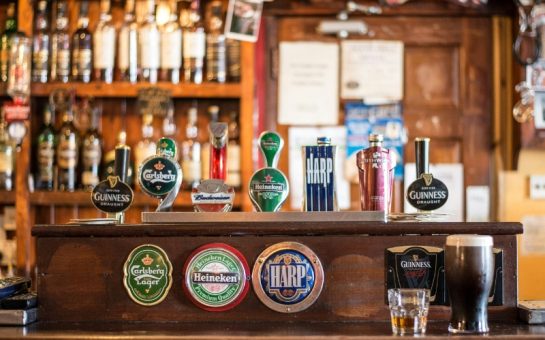Alcohol-induced deaths in London have reached a record high as of 2023 but are still low compared to the rest of England.
According to recently released data from the Population Health Monitoring Group for the Office of National Statistics, the rate of alcohol-based deaths per 100,000 in the capital increased from 11.2 to 11.6 between 2022 and 2023, with a total of 869 deaths in 2023.
While this is an increase, it is still a low rate compared to other regions of England, such as the North East which tops the list with 25.7 deaths per 100,000.
Alcohol-induced in these records is defined as directly resulting from alcohol usage, such as death from liver disease, alcohol-induced pseudo-Cushing’s syndrome, pancreatitis or alcohol poisoning.
Ash Singleton, director of research and public affairs for Alcohol Change UK, said policy is to blame for such high alcohol rates in the north east.
He said: “In Scotland you have minimum unit pricing, which makes it more expensive to buy alcohol in shops.
“You don’t have that in the north east of England so those sorts of super cheap, high treat, high strength drinks that cause a lot of problems are just coming off the shelves.”
Cost as a major factor would explain lower numbers in London where the cost of living, and of goods like alcohol, is comparatively much higher.
Another aspect to consider, however, is loneliness and depression, both of which seriously increased during the pandemic and disproportionately affected poor and rural communities, like many up north.
Singleton said: “Lots of people during the pandemic just sort of started drinking heavily.
“Pubs were closed—you can go and buy alcohol cheaper in shops.
“I think for a lot of people, it was difficult, particularly when you couple it with wider cuts to funding the NHS, I think it’s really created that toxic environment that has led to an increased number of deaths.”
Singleton also discussed a concept called the ‘alcohol harm paradox’, in which the most deprived people are more likely to die from alcohol-based causes because of worse healthcare, even if they drink less.
Robert Weiss, a social worker who specialises in addiction, agrees.
He said: “Access to resources is always a major factor when we’re talking about alcoholism and risk of death.
“People living in bigger and better-connected cities are going to have more resources for help, and if you’re living in a rural area it’s a lot harder to get what you need.
“Mental health is a bigger deal in poor areas and rural areas, because economically it hits harder when you see an entire town lose the one factory or their one [key workplace].
“The pandemic was an economic disaster for many people, and there clearly wasn’t as much recovery for rural areas afterward.”
A clear disparity was also present in alcohol-based death rates between men and women, both throughout England and within London, with men almost twice as likely to die of alcohol-related causes.
While this disparity is consistent with previous data, for London specifically the divergence increased, with the rate of alcohol-based deaths in men per 100,000 rising from 16.2 to 17.9 in 2022 versus 2023 respectively; a 10.5% increase.
Rates of London alcohol-based deaths in women per 100,000 actually decreased post-pandemic, falling from 6.8 in 2022 to 5.9 in 2023; a 15.3% decrease.
Singleton said: “There are a lot of cultural reasons that men tend to be less likely to access support.
“And there’s a lot of broad cultural things like people who’ve worked in particular industries, they’ve got used to feeling the alcohol helps them deal with the stress—particular jobs, like in the police, tend to be more men.
“And there’s some sort of complex differences around how liver treatment and liver disease progresses differently in men and women.”
Weiss says that even worldwide, the disparity persists and that the problem is both chemical and societal.
He said: “Men have more testosterone, which leads to more risk-seeking behaviour and that extends to drinking.
“Men have also been socialised more to avoid their feelings, and avoidance is a very powerful psychological problem.”
In terms of combatting alcohol deaths in London, Singleton had some advice.
He said: “I think we can start to bring together the NHS, local councils, and local voluntary groups, to really focus on prevention and preventing alcoholism within London, to bring the different bits of the system together, because that’s where people slip through the net.”
Featured image: Pixabay





